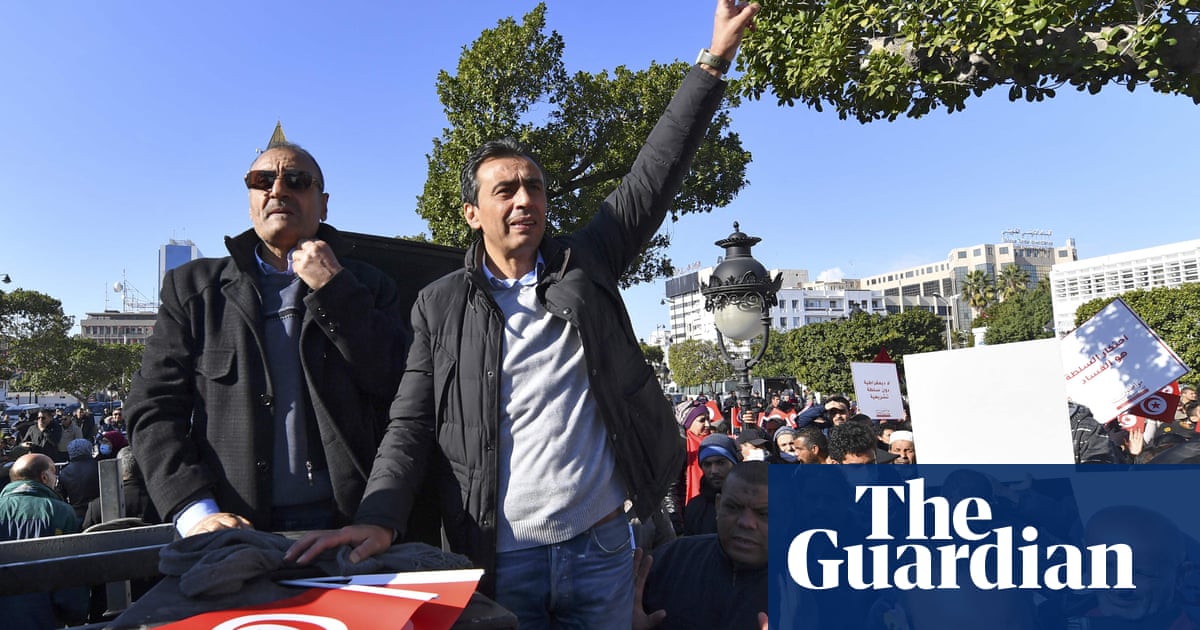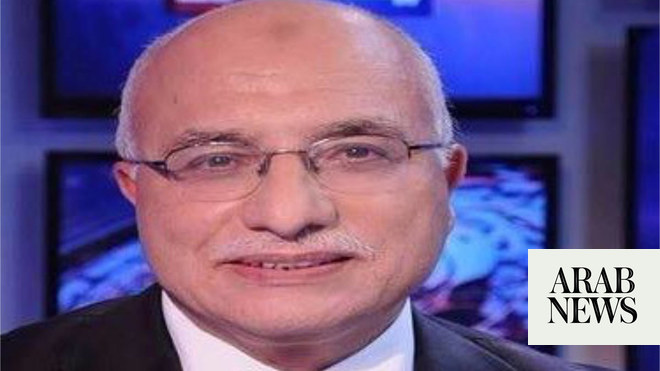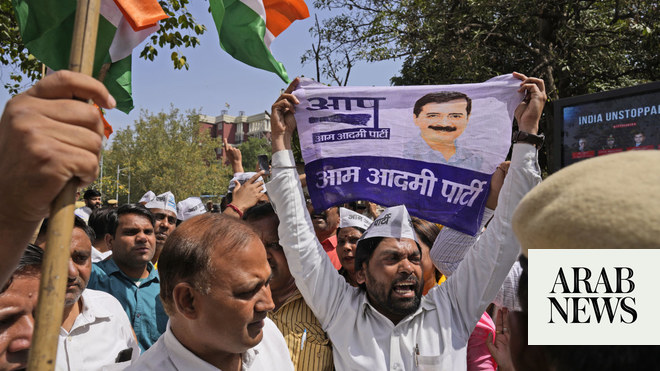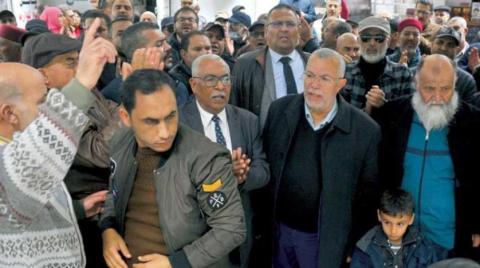
Tunisian security forces have arrested Jaouhar Ben M’barek, the most prominent opposition figure to be rounded up in an escalating campaign of detentions targeting rivals of the president, Kais Saied.
“Jaouhar was arrested late last night and we haven’t seen the charges against him,” his sister Dalila Msaddek, a lawyer, told AFP on Friday.
Ben M’barek was the latest of a dozen prominent public figures arrested this month, mostly rivals of Saied, who froze parliament and sacked the government in a dramatic July 2021 move against the sole democracy to emerge from the Arab spring uprisings.
Saied later pushed through sweeping changes to the north African country’s political system, concentrating near total power in his office.
The left-leaning Ben M’barek, once a government adviser, is a prominent member of the opposition coalition the National Salvation Front (NSF) and leader of the Citizens Against the Coup movement, both formed in response to Saied’s power grab.
The NSF head, Ahmed Nejib Chebbi, told AFP that five detainees including Ben M’barek, the senior NSF member Chaima Issa and Chebbi’s brother Issam, also a prominent politician, had appeared in handcuffs before prosecutors on Friday morning.
“This treatment and the arrests show that the authorities are flailing around and have failed to manage the political, economic and social situation as well as Tunisia’s international relations,” the NSF chief said.
The NSF includes Ennahda, the Islamist-leaning party that had dominated Tunisia’s fractious politics from the revolution until Saied’s power grab. On Friday it voiced its solidarity with Ben M’barek and said it “strongly condemns the widening campaign of arbitrary arrests”.
Ben M’barek’s father wrote on his Facebook account that he, too, was held by police and questioned for several hours on Thursday.
Those arrested this month also include Noureddine Boutar, the director of the country’s most popular private radio station, Mosaïque FM, which has been critical of the president as well as successive governments since the revolution. Authorities questioned Boutar over the station’s editorial line before charging him with “money laundering and illegal enrichment”, according to his lawyers, who said the case was politically motivated.
Saied, who seized control of the judiciary early last year, said this week that those arrested were “terrorists” who had “plotted against state security”. On Wednesday he threatened judges handling the cases, saying “anyone who dares to acquit [those arrested] is their accomplice”.
In a televised speech, Saied added that corruption was “a cancer in the body of the state, which needs to be destroyed with radiotherapy or chemotherapy”. The president has also accused those arrested of being behind persistent shortages of basic goods from sugar to petrol.
Tunisia, which is heavily in debt and import-dependent, is grappling with an acute economic crisis that predates Saied’s takeover but has worsened with the fallout from Russia’s invasion of Ukraine. Ben M’barek, a constitutional law expert like Saied, had supported the president in his successful 2019 election bid, but has since become one of his leading critics.
Since seizing total executive power, Saied has neutered parliament and pushed through a new constitution that gives him near unlimited control and makes it almost impossible to impeach him. Authorities have since placed several of his critics on trial in military courts and rights groups say he is reinstalling an authoritarian system more than a decade after the toppling of the dictator Zine al-Abidine Ben Ali.
On Friday Human Rights Watch said Saied’s public comments undermined the presumption of innocence and attacked the independence of prosecutors and judges.
“After putting himself in charge of prosecution and firing judges right and left, President Saied is now going after his critics with utter abandon,” said Salsabil Chellali, HRW’s Tunisia director. “Saied is calling them terrorists and dispensing with the pretence of assembling credible evidence.”












